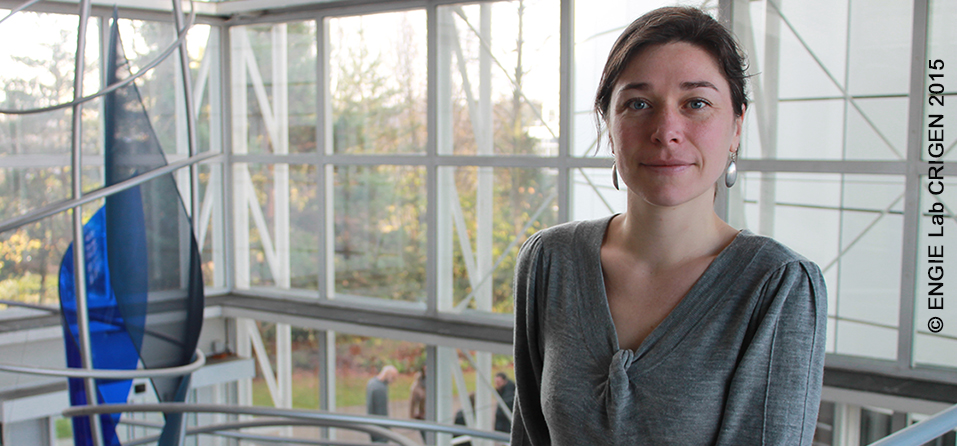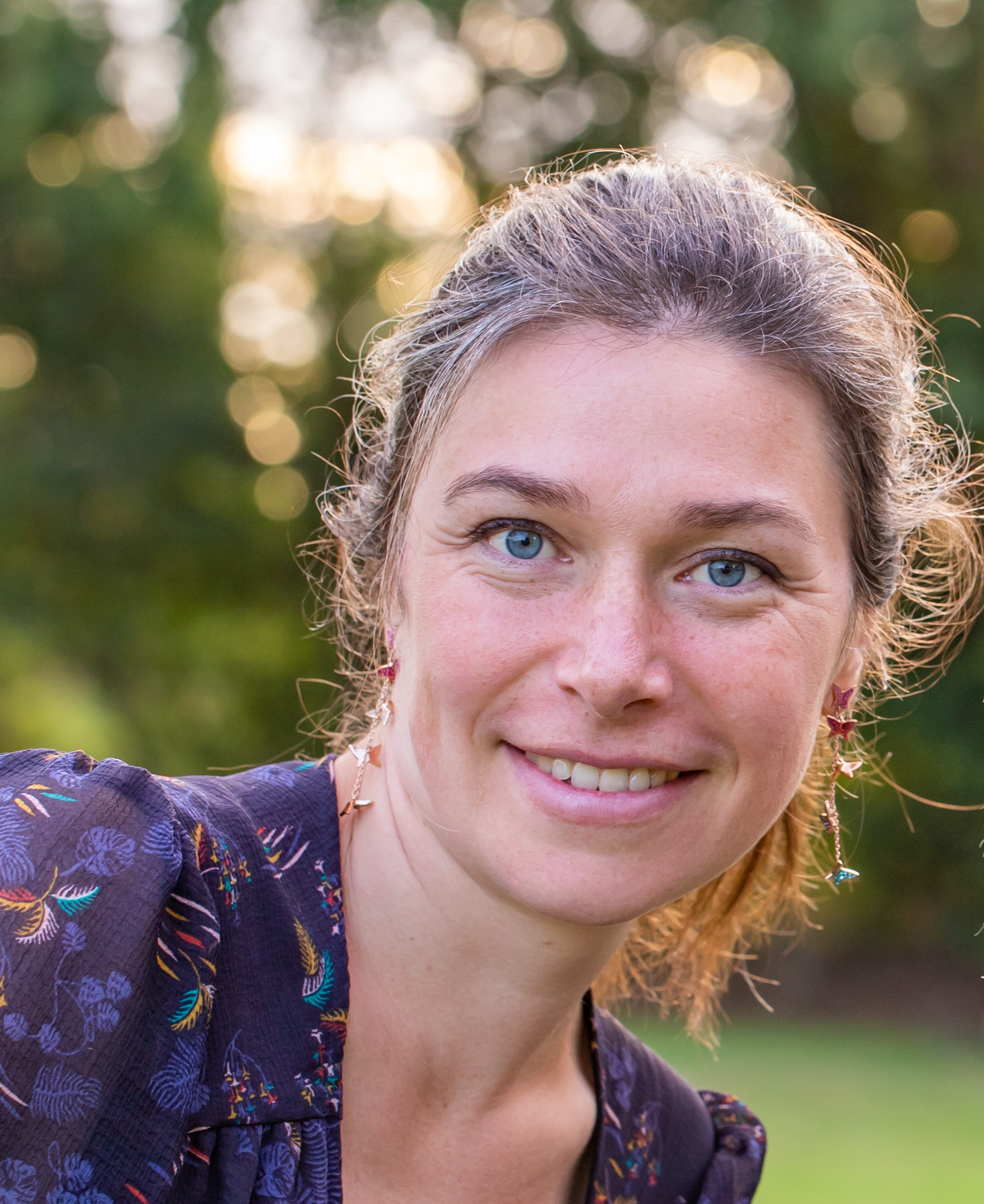


or now, we need innovation and research advances more than ever to meet the demands of the energy transition.
In a few words, could you tell us about your professional background?
Elodie: I’m trained as an agro-economist engineer with a specialization in public policy. I earned my master's degree at the IFP engineering school and then wrote my thesis on energy economics at AgroParisTech and the University of Nanterre Paris Ouest, on the development of new fuels for aviation, biojet fuel from the conversion of solid biomass by gasification.
In 2012, after four years working with second generation biofuels at the investment fund Sofiprotéol (AVRIL group), I joined ENGIE’s strategy team as part of the CĖMEĖ (Center for Economic Studies and Modeling) team. There, I produced forecasts on energy demand for about 30 countries in the European Union and North America. These models, when coupled with supply data, have been used to inform our market analyses and to estimate energy prices.
Because of this professional experience, I then worked on the business plan for the GAYA gasification project in St Fons for CRIGEN.
In 2015, I joined the Environment and Society Lab at CRIGEN, where I managed the development of economic studies. Then I worked as a project manager for the Biomass, Biogas and Waste laboratory.
I set up and managed two national and European projects: the MAPPED project for the development of digitization tools for anaerobic digestion units and the WEBIO platform for estimating real biomass deposits via satellite images.
In 2019, I expanded my scope of expertise and joined the ENGIE Research team where I now serve as a Scientific Advisor, leading international research partnerships, technology watch and contributing to the development of new flagship technology.
You’ve worked in agronomy, economy, and strategy... Why did you make the choice to work in energy?
Elodie: I always wanted to work in the renewable energy field. Since I was a kid, I’ve been interested in wind turbines and solar energy because they use the natural and renewable elements all around us. I was also very interested in environmental issues and biology, so naturally, I studied agronomy and met many people who were so strongly committed to their work. I first worked on the optimization of biomass for energy production, which is a good field to combine with agronomic, environmental and energy studies.
One thing led to another and I discovered the fascinating world of energy! I wanted to focus on the economic issues around this sector in order to understand the workings of it. For me, energy, the economy and the environment are a trifecta necessary to achieve the transition to clean energy.
And, for you, is being a woman in the tech sector an asset or a handicap?
Elodie: I've never seen it as either. The energy sector is open to anyone who wants to work here. I haven’t encountered any barriers as a woman.
At ENGIE, R&D projects are open to both men and women. Maybe it’s more difficult to take leadership positions on large-scale projects, but I’ve not experienced this. I was able to set up the projects I wanted to work on, and with the help of both competent and caring men and women. It’s not a handicap.
I did not, however, have the same sentiment within the world of academia, where I felt that my personal constraints were less understood, but even still, things have undoubtedly changed.
For you, what is the future of energy?
Elodie: For me, the future of energy must be decarbonized. Today we are still thinking in terms of reducing emissions, but without having the means to technologies that are carbon neutral - truly zero emissions.
However, the carbon "capital" we have for keeping the rise in global temperatures below 1.5°C remains limited. Reducing emissions is positive, but if we continue to emit without having the plants and technology necessary for capturing carbon, storing or absorbing carbon, we have a problem.
Changing our technology will require strong, global decisions by leaders in the energy sector. I hope that this will happen in the short term because we have little room for maneuver - maybe ten years to make decisions for investments towards achieving carbon neutrality by 2050.
Do you think women have a specific role to play in the transition?
Elodie: Everyone has a role to play in achieving this. Certainly, women are educated, in general, to be more empathetic, which can be seen as an asset with regards to the urgent and global scale of actions. Empathy generates a more inclusive vision towards humanity, but it can be developed in men just as well. It’s a matter of education and society. We saw it with Covid too - when it comes to saving lives, both women and men healthcare workers put themselves at the frontlines of the battle. We are capable of doing this for climate too, but the process will last a much longer time.
Perhaps future generations will be an asset, with their desire to protect the planet for their children. Motherhood is often an Achilles heel for gender equality: we could make it a force for climate and carbon neutrality so that children born today live on a planet where travelling the world will still be possible, and where people will not be constrained by increasingly serious droughts and floods that make it difficult to get access to basic needs.
Is there a project that you would like to talk about?
Elodie: I'm going to talk about acting for the dissemination of information on emerging sustainable technology. These new technologies could have an impact on the energy sector by making them accessible to everyone.
Alongside Jan Mertens, I am proud of the work we have made towards sharing transparent information about these technologies - to explain how they work, and their advantages and disadvantages. It's an interesting project because more and more people are asking to work with us! This is my way of contributing to solutions for carbon neutrality.
Finally, do you have a message for women?
Elodie: The one that comes to mind is related to difficulties in recruiting women in the research field. Our doors are open to both men and women, and the technical nature of our jobs is exciting. A thesis in the field of corporate research will help you understand fundamental research and apply it in the industrial field. Emerging technology is begging for cross-disciplinary and highly specialized fields.
The day we have a sufficiently large variety of technology, we will not have to worry as much. But for now, we need innovation and research advances more than ever to meet the demands of the energy transition. I wish to invite all students to continue their studies in applied research and then join companies where they are needed.